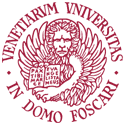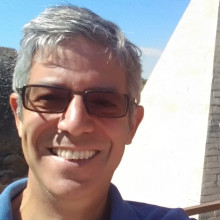PhD in
History of Arts
Final results - call for applications 41th cycle (a.y. 2025/2026)
Applications and Selections are closed. You will find all results, according to the schedule, on the page dedicated to Selections.
For further information, please contact the PhD Office (phd.application@unive.it)
Educational aims and research themes
PhD programmes represent the highest level of university degree. The international PhD Programme in the History of Arts is designed to provide an outstanding scientific and professional qualification with an international perspective in the field of art-historical research and in the promotion of artistic, environmental and local heritage by exploring various disciplinary, thematic and chronological areas - with particular attention to the inter-disciplinary potential of the various forms of expression.
Key areas of focus are the history of architecture, sculpture, painting, miniatures, the sumptuary arts, graphics, photography, and all forms of expression of the visual arts from the Middle Ages to the present day; other areas of focus include the expressive intent and practice of performing arts from theatre to cinema, musicology and ethnomusicology. Our research is based on historical, theoretical and methodological modes of enquiry, and includes artistic literature, the history of taste, patronage and reception of art, of collecting, of the organisation of museums and exhibitions, and of artistic techniques. Particular attention will also be paid to the use of Information and Communication Technologies for the understanding, reception, and promotion of artistic and cultural heritage.
This broad range of skills and training will be acquired in a workshop like no other - based in the context of the art-historical and cultural heritage of Venice, a city with a strong national and international appeal. Doctoral research takes place in a highly internationalised environment that will provide students with the opportunity to study abroad for varying periods on the basis of their specific needs and allow them to become familiar with study contexts going beyond the national environment.
The PhD programme uses learning tools and scientific instruments that will allow students to acquire a systematic knowledge base in the various sectors and benefit from a wide network of international relations offering them the opportunity to acquire advanced skills equipping them for a career in education or in professional sectors linked to research or higher learning institutions.
Structure of the programme
Study modules and training, delivered by Faculty staff as well as by visiting lecturers from both Italian and international universities, are mainly targeted at students in their first and second year rather than at third-years who will be busy with their dissertations.
The programme, which will be communicated to all students by the end of October every year, is organised as follows:
First year
- attendance of a series of compulsory seminars (art history research methods and instruments, the art market, ICT applied to the historic heritage and history of art) and of a series of courses and seminars in academic writing, communication techniques and participation in European projects;
- B2 Level English;
- participation and presentations at national and international conferences;
- the start of research into an approved project with the constant guidance of one or more supervisors.
Students will be required to obtain the following ECTS: 60 ECTS - 40 of which for training activities and 20 for research
Second year
- students will continue their research activities with assessments once every semester;
- study period abroad at a qualified institution;
- attendance and presentations at national and international conferences in addition to further training activities in the context of the PhD programme
Students will be required to obtain the following ECTS: 60 ECTS - 20 of which for training activities and 40 for research
Third year
- dissertation;
- attendance and presentations at national and international conferences.
Students will be required to obtain the following ECTS every year: 60 ECTS for research
Training activities
The training activities are intended to equip students with a systematic understanding of the study sector as well as:
- methodological skills that will allow them to conceive, plan, realise and adapt a research process with the commitment and seriousness required of a researcher;
- research competences broadening their knowledge and attaining outcomes worthy of publication;
- the capacity to critically analyse, evaluate and summarise complex new ideas;
- the capacity to communicate among peers, with the wider community of scholars and with society, with regard to research themes;
- skills in promoting technological, social or cultural advances based on knowledge in academic and professional contexts.
Doctoral students are encouraged to participate in the research teams set up within the Department of Philosophy and Cultural Heritage, learning to communicate the contents of their research to different publics (students, colleagues and lecturers).
Doctoral students will be expected to describe and discuss the progress of their research projects with the Teaching Committee twice a year.
History and professional profiles
The Ca’ Foscari University PhD Programme in the History of Arts has been running since 1982.
The University launched the International PhD Programme in the History of Arts in the academic year 2017-18 following an agreement with the State Institute for Art Studies Moscow.
The PhD programme trains researchers in the history of art of the 21st century, equipping them for a career in the arts world and including them in an international community that meets on a regular basis and shares its results via various channels (journals, bibliographic and documentary exchanges). The skills acquired can be applied to a career in academia or in secondary education as well as in professional sectors like research and in archives, libraries, museums, private research institutes, cultural foundations and institutions, and private companies.
At least 4 doctoral scholarships worth approximately € 1,250 net per month (with a 50% increase during periods of mobility abroad) are offered every year.


